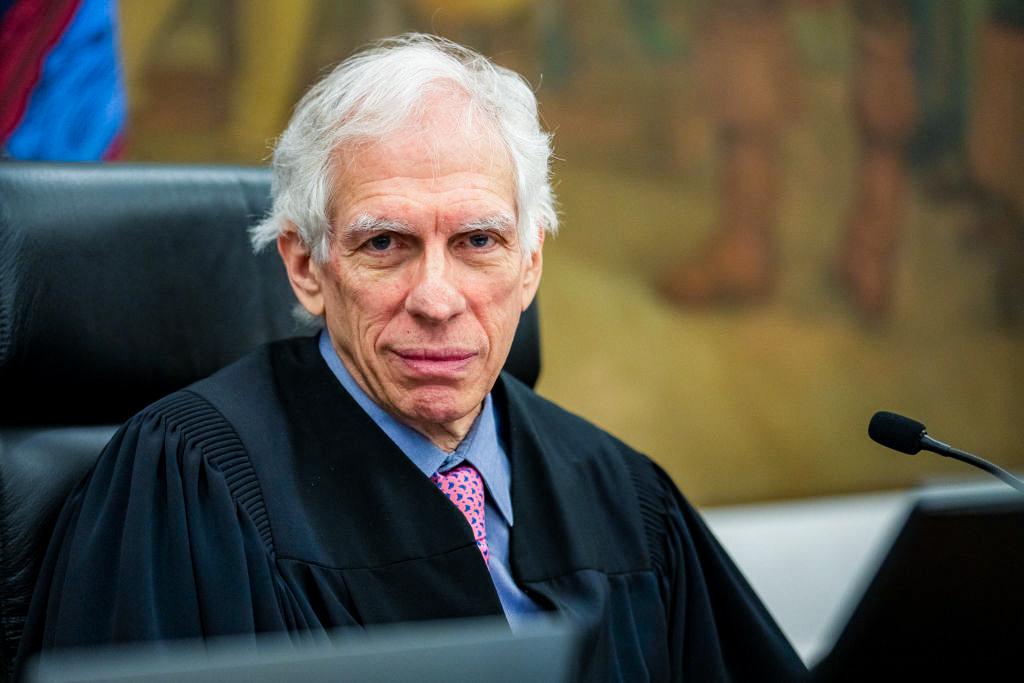A representative for the judge in former President Donald Trump’s civil fraud trial in New York said the judge had no inappropriate contact with an attorney prior to handing down his decision to fine Trump $454 million for inflating the value of his assets in February, according to a new report.
Adam Leitman Bailey, a high-profile New York real estate lawyer, told NBC New York in an interview on Feb. 16 that he offered unsolicited advice to Judge Arthur Engoron a few weeks before he made his decision.
“I saw him in the corner [at the courthouse] and I told my client, ‘I need to go.’ And I walked over and we started talking. … I wanted him to know what I think and why. … I really want him to get it right,” he told the outlet in the interview on the same day Judge Engoron made his ruling.
The conversation could have violated New York State Rules of Judicial Conduct that governs interactions with judges about pending cases outside the presence of official proceedings where the involved parties are present.
Those rules state that “a judge shall not initiate, permit, or consider ex parte communications, or consider other communications made to the judge outside the presence of the parties or their lawyers,” with the exception of obtaining the “advice of a disinterested expert” if the judge provides notice to involved parties.
Ex parte refers to communication where a party involved in a case talks, writes, or otherwise communicates directly with the judge about issues regarding the case without the other parties’ knowledge or presence.
Attorney Argued Against Using Novel Fraud Statute
Mr. Bailey said he was not a “fan” of President Trump, but offered his insight because he wanted Judge Engoron to make the correct decision, which would have been opposite of how he actually ruled.He said it was his belief that Judge Engoron should not use a specific state fraud statute to shut down a major company, arguing it would hurt the reputation of the state and harm its economy.
A similar argument was made by President Trump’s legal team but denied by Judge Engoron.
“If you talk to people in this market, they are very, very upset … and these are people who are neutral or even opposed to Trump,” Mr. Trzcinka told The Epoch Times. “They’re just angry about it.”
The case promises to discourage investors from doing business in the Empire State, Mr. Trczinka and two other knowledgeable sources told The Epoch Times at the time.
Mr. Bailey argued in a follow-up interview with NBC New York that he didn’t think he or the judge did anything wrong.
Where the Civil Fraud Case Stands
In April, President Trump and New York Attorney General Letitia James reached an agreement regarding his $175 million bond in his New York civil case, imposing additional restrictions while resolving concerns about the funds’ security.The attorney general argued that Knight Specialty Insurance Company (KSIC) lacked a “certificate of qualification” and that President Trump still had access to the Charles Schwab account pledged to the insurer as collateral.
Judge Engoron accepted the April 22 agreement, which gave KSIC exclusive control over the account. The state made the offer after Mr. Kise provided an oral argument.
The bond issued by KSIC is meant to secure President Trump’s compliance with a $454.2 million judgment won by Ms. James while an appeal takes place.
Ms. James had challenged the sufficiency of President Trump’s bond and cast doubt on the stability of the insurance company.







